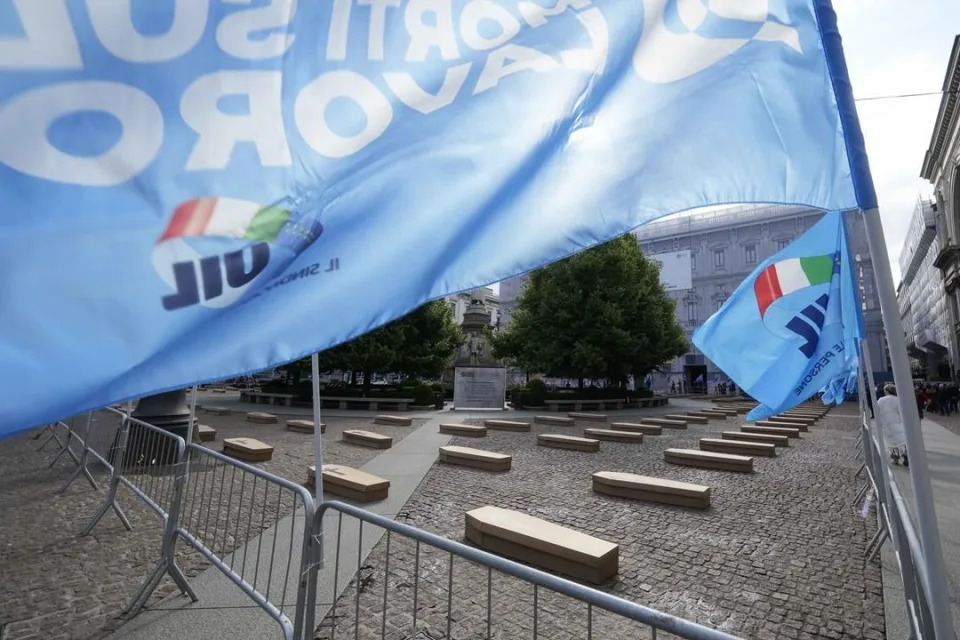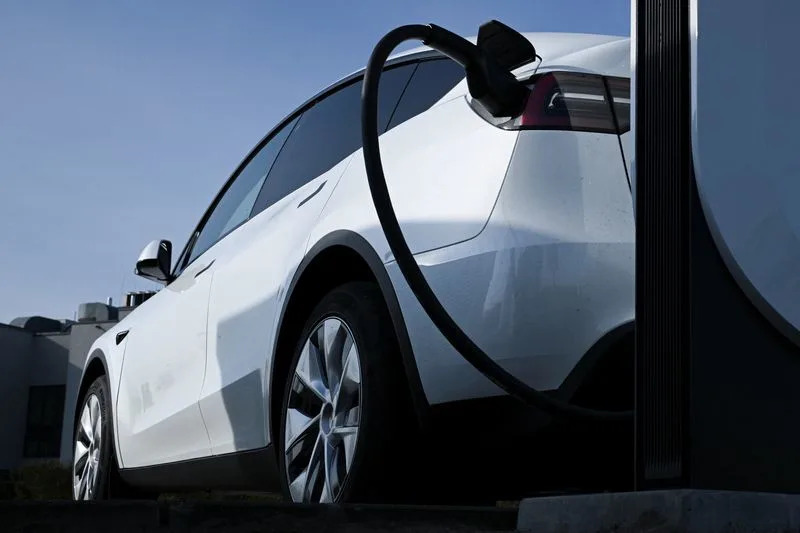Oil and natural gas executives should be careful what they wish for.
Rick Newman
·Senior Columnist
Big Oil has chafed under President Biden, who has trash-talked fossil fuels and aggressively pushed to decarbonize the US economy. Donald Trump, by contrast, says “drill, baby drill” and has reportedly promised to give energy lobbyists everything on their wish list if their firms back his 2024 presidential campaign.
Irony alert: The fossil fuel industry has done far better during Biden’s presidency than it did during Trump’s in terms of profitability, stock performance, and production. Some of Trump’s promised policies, in fact, could lead to the same sort of oversupply that kept consumer prices low during his presidency but wrecked oil and gas financials.
Trump reportedly hosted oil executives at his Mar-a-Lago estate recently and listened to their complaints about onerous regulations under the Biden administration. There’s truth to that: Biden has raised the cost of drilling on federal land, imposed new requirements to reduce methane emissions, paused the approval of new natural gas export permits, and taken other steps that add cost and complexity to fossil fuel extraction.
Yet the industry is hardly hurting. The energy sector’s profit margin in 2023 averaged 11.3%, according to S&P Capital IQ. Wall Street forecasts for 2024 are similar. That would put the average energy sector profit margin for Biden’s four years at around 11%.

An oil pumpjack operates in Signal Hill, south of Los Angeles, California, on April 21, 2020, a day after oil prices dropped to below zero as the oil industry suffered steep falls in benchmark crudes due to the ongoing global coronavirus pandemic. (FREDERIC J. BROWN/AFP via Getty Images) (FREDERIC J. BROWN via Getty Images)
During Trump’s four years, the energy sector profit margin was basically 0. That includes the wipeout year of 2020, when the COVID pandemic brought travel to a halt and sent oil prices plummeting. Excluding 2020, the average energy margin was just 4.5%. In each of Trump’s four years, energy profits were lower than in every year of Biden’s presidency.ExxonMobil (XOM), the nation’s largest energy firm, reflects the performance of the whole sector. It had record profits in 2008, but net income dropped sharply during the 2010s. Then, in 2020, Exxon lost a staggering $22.4 billion. The oil giant recovered, and in 2022 turned in a new record performance, earning $55.7 billion.
As with many elements of the economy, the effect of any given president’s policies is far less important to the energy sector than what’s going on in global markets. Around 2012, during the Obama administration, the hydraulic fracturing revolution generated a boom in American oil production. That wasn’t because of anything Obama did. It was because of new technology and aggressive private-sector investment.
For the next several years, drillers focused on gaining market share, assuming profitability would follow. That production boom made the United States the world’s largest producer of both oil and natural gas, which is still the case today. The OPEC+ oil-producing nations fought back by boosting their own production, which kept oil and gasoline prices subdued.
·Senior Columnist
Yahoo Finance
Fri, May 10, 2024
Fri, May 10, 2024
Irony alert: The fossil fuel industry has done far better during Biden’s presidency than it did during Trump’s in terms of profitability, stock performance, and production. Some of Trump’s promised policies, in fact, could lead to the same sort of oversupply that kept consumer prices low during his presidency but wrecked oil and gas financials.
Trump reportedly hosted oil executives at his Mar-a-Lago estate recently and listened to their complaints about onerous regulations under the Biden administration. There’s truth to that: Biden has raised the cost of drilling on federal land, imposed new requirements to reduce methane emissions, paused the approval of new natural gas export permits, and taken other steps that add cost and complexity to fossil fuel extraction.
Yet the industry is hardly hurting. The energy sector’s profit margin in 2023 averaged 11.3%, according to S&P Capital IQ. Wall Street forecasts for 2024 are similar. That would put the average energy sector profit margin for Biden’s four years at around 11%.
An oil pumpjack operates in Signal Hill, south of Los Angeles, California, on April 21, 2020, a day after oil prices dropped to below zero as the oil industry suffered steep falls in benchmark crudes due to the ongoing global coronavirus pandemic. (FREDERIC J. BROWN/AFP via Getty Images) (FREDERIC J. BROWN via Getty Images)
During Trump’s four years, the energy sector profit margin was basically 0. That includes the wipeout year of 2020, when the COVID pandemic brought travel to a halt and sent oil prices plummeting. Excluding 2020, the average energy margin was just 4.5%. In each of Trump’s four years, energy profits were lower than in every year of Biden’s presidency.
As with many elements of the economy, the effect of any given president’s policies is far less important to the energy sector than what’s going on in global markets. Around 2012, during the Obama administration, the hydraulic fracturing revolution generated a boom in American oil production. That wasn’t because of anything Obama did. It was because of new technology and aggressive private-sector investment.
For the next several years, drillers focused on gaining market share, assuming profitability would follow. That production boom made the United States the world’s largest producer of both oil and natural gas, which is still the case today. The OPEC+ oil-producing nations fought back by boosting their own production, which kept oil and gasoline prices subdued.
But low prices for consumers came at the expense of profitability for drillers. From 2015 through 2020, the US energy sector was the worst performer among 11 industries in terms of profitability.
The wipeout in 2020, when oil prices briefly turned negative, transformed the industry. Since then, drillers and their investors have prioritized profitability and invested less in new capacity. Even so, US oil production has hit new record highs under Biden, driven mainly by high prices that make increased production lucrative. And unlike the 2010s, the OPEC+ nations have been limiting their own output to keep prices up rather than flooding the market to protect share.
The wipeout in 2020, when oil prices briefly turned negative, transformed the industry. Since then, drillers and their investors have prioritized profitability and invested less in new capacity. Even so, US oil production has hit new record highs under Biden, driven mainly by high prices that make increased production lucrative. And unlike the 2010s, the OPEC+ nations have been limiting their own output to keep prices up rather than flooding the market to protect share.
Trump has reportedly promised oil executives that he’ll revoke many of Biden’s green energy rules and take other steps favorable to fossil fuels, such as speeding drilling permits and allowing more extraction from federal territories. In exchange, Trump wants the industry to pump $1 billion into his 2024 presidential campaign. But Trump also wants lower energy prices for consumers, and he might find that energy firms prefer less production and higher prices over more production and lower prices.
Biden is obviously no friend of Big Oil, but any policy that disincentivizes fossil fuel production — which is what Biden is trying to do — effectively pushes prices higher. And when prices go higher, drillers earn more. Don’t expect oil CEOs to thank Biden, but his antipathy toward fossil fuels isn't nearly as damaging as they might want you to think.
Rick Newman is a senior columnist for Yahoo Finance. Follow him on Twitter at @rickjnewman.
Biden is obviously no friend of Big Oil, but any policy that disincentivizes fossil fuel production — which is what Biden is trying to do — effectively pushes prices higher. And when prices go higher, drillers earn more. Don’t expect oil CEOs to thank Biden, but his antipathy toward fossil fuels isn't nearly as damaging as they might want you to think.
Rick Newman is a senior columnist for Yahoo Finance. Follow him on Twitter at @rickjnewman.











